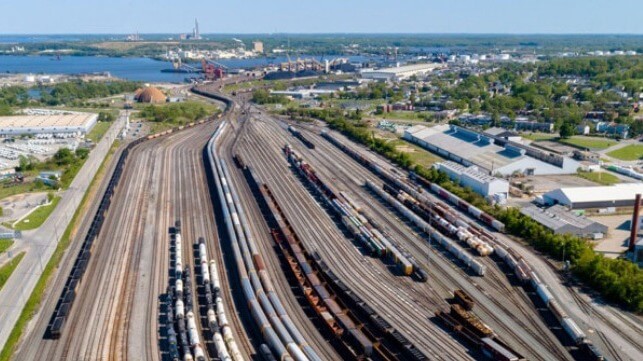Closure of Baltimore Port Impacts Coal Exports and Bulk Trades Warns US EIA

The closing of the Port of Baltimore is likely to have an impact on several core trades in the U.S. primarily in the less high-profile bulk trades including coal and important materials for agriculture and even roads. The U.S. Energy Information Agency warned on Thursday in a market analysis that the interruption in operations in Baltimore may affect the volume of coal exports this year from the United States while the port’s location makes it the closest coastal port to Midwestern markets, the source of agricultural demand.
Among the bulk cargo trade, the analysis highlights the importance of the Port of Baltimore in a range of trades. They report that Baltimore is the second-largest exporting hub for coal in the United States. It makes up a little more than a quarter of the U.S. market (28 percent in 2023) and while growth in coal exports was expected to be much slower (1 percent in 2024) they highlight coal exports have been steady from Baltimore around 20 million tons in three of the past five years. Growing demand from Asia helped to drive the growth in 2023 and the only exception to the port’s volumes was in 2020 when the pandemic reduced worldwide demand.
An attractive feature of the Port of Baltimore is its proximity to the northern Appalachia coal fields in western Pennsylvania and northern West Virginia. As a result, there are two full-service terminals, Curtis Bay Coal Piers served by the CSX Railroad and the CONSOL Energy Baltimore Marine terminal served by both CSX and Norfolk Southern Railroads, that receive, store, and load coal onto ocean-going vessels. Both terminals are blocked by the bridge collapse with the railroads reporting they are exploring alternatives.
More than half of the coal passing through Baltimore is used in electric power generation and industrial heating with India being the primary customer. Coal used as a raw material in steel makes up the remaining portion of the market with China and South Korea as customers as well as shipments to Europe and South America.
While the EIA warns the blockage can impact export volumes for the year, S&P Global Commodity Insights predicts due to an oversupply in coal, the disruption is unlikely to have a significant impact on the price of coal. Analysts also note that the U.S. accounts for only two percent of the world's coal exports.
Norfolk and the Hampton Roads area of Virginia are the largest ports processing coal. EIA reports there is excess capacity at Virginia’s facilities.
Among other bulk cargos, they highlight Baltimore also imports the most asphalt of any U.S. port. Coming from Canada, it is used for roadways and roofing, but they note other U.S. Atlantic Coast ports can import asphalt.

that matters most
Get the latest maritime news delivered to your inbox daily.
In the agricultural sector, they highlight Baltimore's role in fertilizers and chemicals. Baltimore imports the most urea ammonium, a common liquid fertilizer, of any U.S. Atlantic port. It is also the fourth largest overall among all U.S. ports. Norfolk, Virginia and Wilmington, North Carolina they believe can handle the imports of urea ammonium nitrate while Baltimore’s port is blocked.
Other trades such as petroleum products they highlight will be less impacted. According to ship tracking data, EIA reports there was just one shipment of gasoline into the Port of Baltimore in 2023, and there were three petroleum-related export cargos in all of 2023. They also note that bunker fuel consumption is expected to decrease as Baltimore is a major transit point for freight and bulk vessels which are now blocked from the port.
